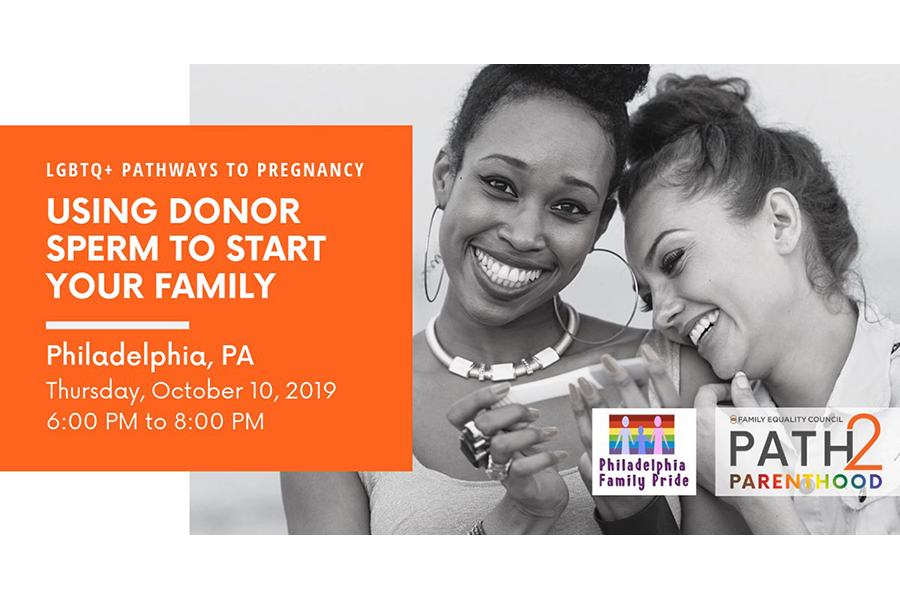National LGBTQ nonprofit Family Equality has partnered with Philadelphia Family Pride to host “Using Donor Sperm To Start Your Family,” a panel discussion exploring the medical and legal challenges of artificial insemination taking place Oct. 10 at William Way LGBT Community Center.
The event, a part of Family Equality’s LGBTQ+ Paths to Pregnancy series taking place across the country, will focus on the intricacies of working with known and unknown sperm donors, at-home insemination, fertility medical procedures and legal knowledge. The panel includes local experts like fertility specialist Dr. Jackie Gutmann, lawyer Tiffany Palmer and midwife Ray Rachlin, who join Scott Brown, director of client experience and communications at Los Angeles-based California Cryobank. Family Equality’s Chief Program Officer Amanda Winn will facilitate the discussion.
“Just like for anybody, starting a family and trying to achieve a pregnancy is a really overwhelming process and you have to be able to have people there in person, real live people who can answer your questions,” Winn said. “To also be in a room of 30 or 40 other folks who are in the same boat that you’re in, as scared as you are, as unknown about the future as you are, it can then become a peer support group through the process.”
According to the Family Equality Council’s LGBTQ Family Building Survey, 63 percent of queer millennials ages 18-35 are considering expanding their families by either becoming parents for the first time or having more children.
While information on family planning options for members of the queer community is more readily available than in the past, Winn said, medical, legal and financial barriers still exist. A vial of donor sperm from a cryobank typically costs $500-$1,000, a hardship that snowballs when considering many people don’t become pregnant on their first attempt.
Many LGBTQ couples will only receive health insurance benefits for fertilization after providing medical proof of infertility, a diagnosis that often requires six documented months of unsuccessful attempts, Winn added. This means some attempting parents may shell out $6,000 before seeing any help from insurance.
“We [experience infertility] at the same rate as cisgender heterosexual prospective parents, but we’re not typically seeking fertility services because we’re infertile,” she explained. “We’re seeking them because we don’t have all the parts that we need to make a baby.”
LGBTQ parents are also more likely to live in three-parent households, such as with a couple and a donor raising a child, or experience legal difficulties with guardianship after putting names on birth certificates.
Ray Rachlin, founder of the West Philadelphia practice Refuge Midwifery, will speak at the event about the logistics of at-home intrauterine insemination, including how partners can work together to pinpoint ovulation. The panel is helpful because it combats a lack of information about these topics and addresses how “systems aren’t set up for our families,” added Rachlin, who is queer.
“The more information people have about their bodies and the tools and resources that are available to them, the easier it is to make informed decisions and also help lift up their community,” Rachlin said.
